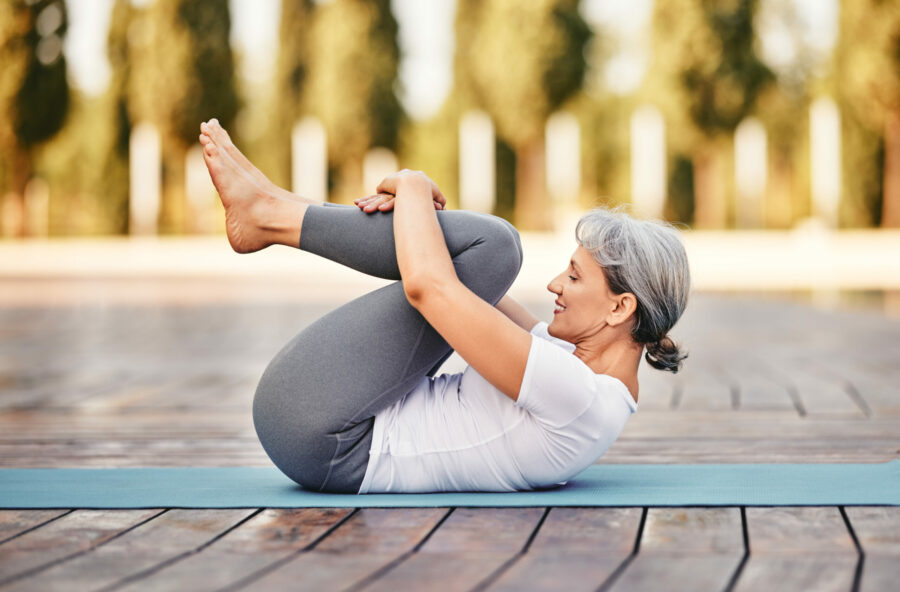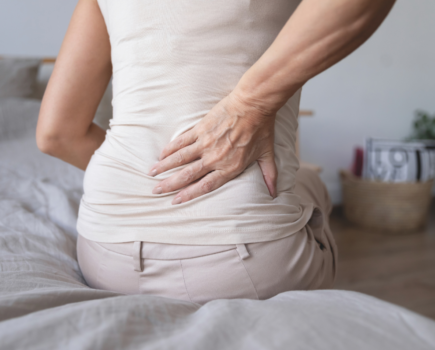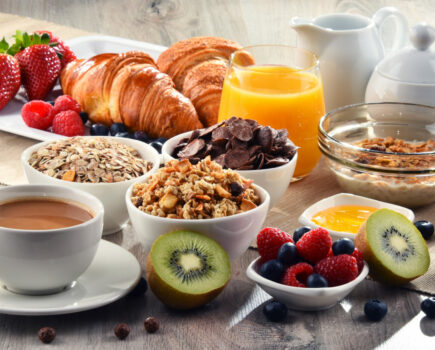The link between menopause and our joints: An expert shares what’s really going on and what we can eat to improve our joint health as we age
A sometimes overlooked issue of the menopause is its impact on the joints. Inflammation can cause pain and stiffness, affecting quality of life. But there’s no need to despair as making the right lifestyle choices can ease the problem and allow you to live a full active life.
Here, market-leading supplement brand Cytoplan and Karen Newby, a Nutritional Therapist specialising in menopause share ways in which women can look after their joints and the top foods that can help to support joints impacted by the menopause.

The Cytoplan range
So how does menopause affect joint health?
Nutritional Therapist Karen Newby explains: “Oestrogen supports osteoblast activity which builds new bone, and is why post menopause is a risk factor for developing osteoporosis. Declining oestrogen levels can also make us more inflamed as oestrogen is one of our natural anti-inflammatory steroid hormones. This explains why new research positions perimenopause (the lead up to menopause) as a ‘pro-inflammatory phase in a woman’s life. We start to suffer with aches and pains during perimenopause, although we may have struggled with these pre menopause, just before day one of our cycle, when oestrogen is at its lowest.
“Oxidative stress, which is caused by an imbalance between free radical formation and antioxidant status, is known to be a factor in cartilage destruction. This can often be exacerbated at menopause as the decline of oestrogen increases oxidative stress 1. It is important to maximise antioxidant rich foods to help quench these free radicals. Aim for 30-plus unique plants per week – these can be fruits and vegetables, herbs and spices, nuts and seeds, pulses, and gluten free grains. Then work your way up to 40-plus to 50-plus — your joints will thank you for it!
“Collagen is the building block of cartilage and it can reduce by up to 30% at menopause!2 It has also been shown to have huge benefits for our skin health and can help to reduce symptoms of osteoarthritis, a common condition at menopause3.”

Live your best life
What should we eat to help look after our joints?
- Increase collagen-rich foods and foods that help to boost the body’s natural production of collagen. These include chicken, fish skin, glycine-rich tofu, nuts, seeds and proline-rich alfalfa sprouts, asparagus, beans, buckwheat, cabbage, cucumber and tempeh.
- Increase vitamin C — we need a steady supply of vitamin C as it is not stored well in the body and is essential to help collagen synthesis4. Try incorporating fruit and vegetable smoothies and juices into your diet packed with citrus fruits, parsley and peppers — some of the highest food sources of vitamin C.
- Ensure you are getting enough vitamin D – which is known to support calcium absorption and helps to support bone mineral density5. It can also help to reduce joint pain in osteoarthritis6. Sunlight and a high-quality supplement can help reach optimal levels and foods such as fish skin, and mushrooms if they have been grown under UV light are best.
- Zinc, magnesium, copper and boron are essential minerals to consider for joint health7 so foods such as sesame seeds, prawns, dark raw chocolate, lean meat, green leafy veg, pumpkin seeds, pinto and black beans, avocado, chickpeas, tofu, pears, plums and cherries are good sources to include in the diet.
- One other very important mineral is manganese and a great saying to remember is ‘clicky knees, more manganese!’ Sources include oats, brown rice, hazelnuts, almonds, pecans, linseed, sesame and pumpkin seeds, cloves, saffron and chilli powder.
- Overall, your diet should be high in anti–oxidant rich fruit and vegetables such as pomegranate, blueberries, plums, red onions, beetroot and carrots. Flavonoids found in pomegranate and cherries, for example, can inhibit cartilage breakdown. Increasing phytoestrogens to help support oestrogen can be achieved by including foods such as soya, peas, chickpeas, broccoli, carrots, cabbage and red clover tea.
- In terms of movement, make sure you are standing up more, regularly exercising and maintaining a healthy weight to keep your joints healthy. For extra support, consider supplements such as Glucosamine Sulphate, Chondroitin, a high-quality collagen and an omega 3.
To shop for a market-leading Joint Health range head to Cytoplan.
About Cytoplan
As leaders in food-based and ethical supplementation for over 30 years, Cytoplan has maintained the belief that nature holds the key to health, creating products that work in harmony with the body to optimise health and the company is dedicated to improving the health of the nation, both ethically and sustainably. An independent British company and wholly owned by The AIM Foundation, Cytoplan invests widely in health and nutritional projects across the UK and address issues such as global warming, community wellbeing and mental health. Every product purchased goes towards helping others. To find out more about The AIM Foundation.
Research sources
1 https://www.ncbi.nlm.nih.gov/pmc/articles/PMC3952404/
2 https://www.ncbi.nlm.nih.gov/pmc/articles/PMC7078862/
3 https://www.ncbi.nlm.nih.gov/pmc/articles/PMC8401832/
4 https://link.springer.com/article/10.1007/s00264-018-4211-5
5 https://www.ncbi.nlm.nih.gov/pmc/articles/PMC5579659/
6 https://www.ncbi.nlm.nih.gov/pmc/articles/PMC6413222/
7 https://pubmed.ncbi.nlm.nih.gov/33783714/
8 https://www.ncbi.nlm.nih.gov/pmc/articles/PMC5946256/
9 https://www.ncbi.nlm.nih.gov/pmc/articles/PMC8732765/
10 https://pubmed.ncbi.nlm.nih.gov/34023805/
11 https://www.ncbi.nlm.nih.gov/pmc/articles/PMC8732765/
12 https://www.ncbi.nlm.nih.gov/pmc/articles/PMC4712861/
13 https://www.ncbi.nlm.nih.gov/pmc/articles/PMC8732765/
14 https://www.ncbi.nlm.nih.gov/pmc/articles/PMC7230935/
15 https://www.ncbi.nlm.nih.gov/pmc/articles/PMC7897612/
16 https://www.ncbi.nlm.nih.gov/pmc/articles/PMC3150191/
Some Platinum online content is funded by outside parties. The revenue from this helps to sustain our independent news gathering. You will always know if you are reading paid-for material as it will be clearly labelled on the site and on social media channels. This content has been paid for and produced by Cytoplan.








